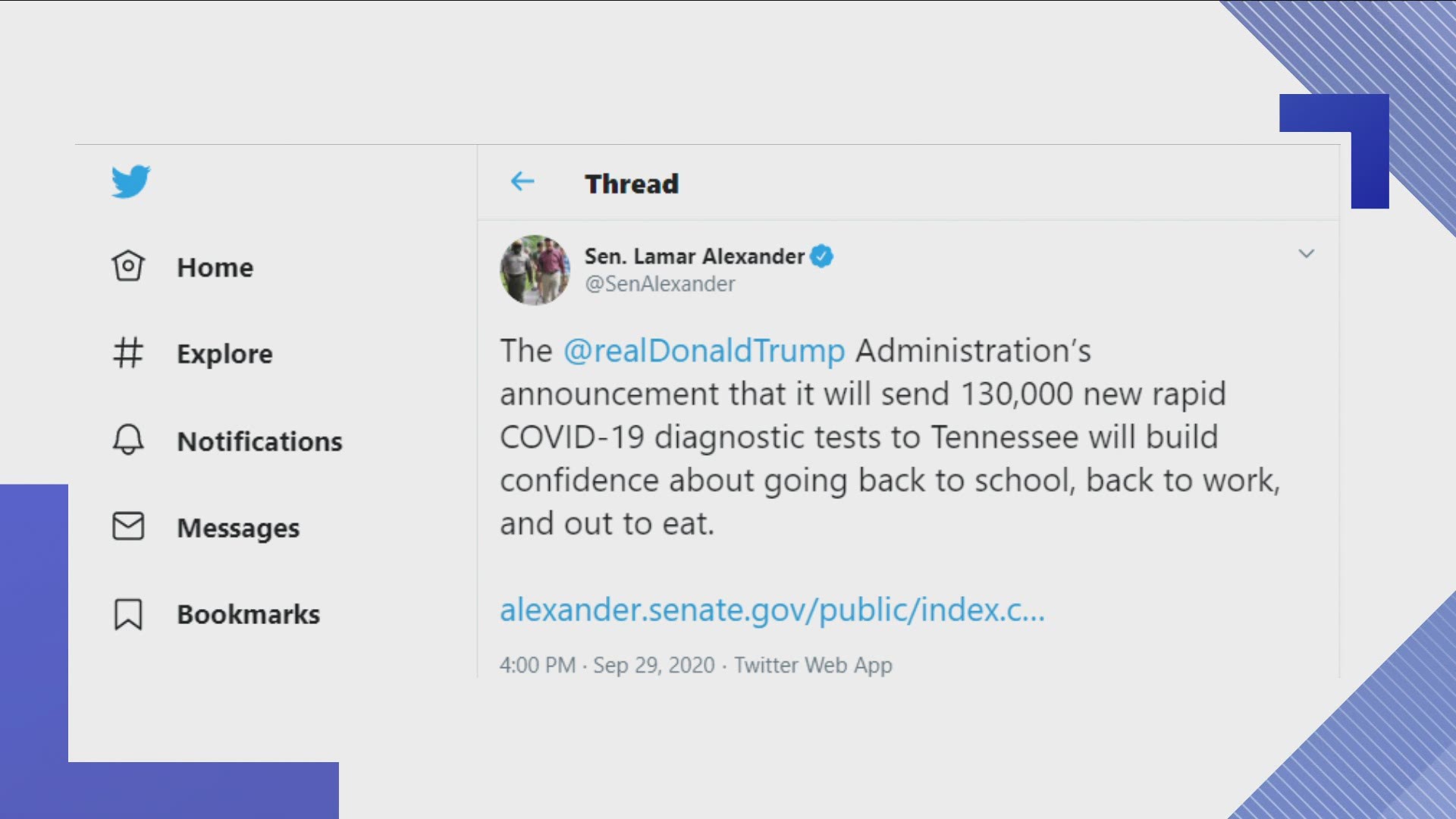NASHVILLE, Tenn. — The Tennessee Department of Health announced Tuesday it will soon be equipped with a "true game changer" in the fight to stop COVID-19's spread.
TDH Director Dr. Lisa Piercey said millions of the newly approved antigen testing kits are being rolled out to states, including Tennessee, that can almost immediately identify people who may be infected with COVID-19. The company producing them, Abbott Laboratories, said it expects to ramp up production to 50 million tests a month in October.
The kits cost roughly $5 each, don't require any specialty equipment, can be performed on site by virtually anyone without any sort of formal training, and take roughly 15 minutes to get results.
Plus, they don't require an uncomfortable nasal swab that goes deep into the back of a person's nasal passages. The rapid tests take the sample swab of mucus from the front of the nasal passage, which Piercey said is "well tolerated" by most.
The tests cards -- which the company likens to an encrypted "boarding pass" -- can optionally be carried by those who tested negative and scanned with a smartphone app to quickly record who received a negative test. Those who test positive will be told to immediately quarantine and talk with their doctor about follow-up testing to confirm if they have the virus.
Back in August, the Food and Drug Administration approved these rapid portable COVID-19 testing kits for emergency use.
The initial priority for these tests will be getting them into the hands of schools and businesses that would benefit most from having frequent, rapid on-site testing to reliably find people with COVID-19 before they can spread it.
The implications of having these tests widely available could be enormous for schools and businesses such as airlines that inherently struggle with balancing measures to protect customers from COVID-19 with being able to offer basic services. Being able to reliably test "at the door" would increase public confidence in safely using these services again, though it would not eliminate all uncertainty.
It's important to keep in mind that these tests do not actually diagnose a person with COVID-19, and will not be used to formally indicate if someone is positive or not. Instead, they are intended to provide a quick and cheap way for people to determine almost immediately, with high sensitivity, if someone likely has the virus and needs to quarantine/be tested through standard PCR tests.
Piercey said the term "sensitivity" with these tests is important, and should not be confused with "accuracy." Sensitivity is the rate at which these tests have been seen correctly producing a positive result -- ensuring there are as few false negative results as possible. The tests work similar to pregnancy tests, in that they are looking for a specific biological reaction in someone who may have been infected with COVID-19 -- not the presence of the COVID-19 virus itself. Specifically, the tests are looking for the positive presence of antigens, the substances that trigger immune responses in people after an infection.
Piercey said these new rapid antigen tests have shown a very high sensitivity rate in people with symptoms of COVID-19 -- upward of 97% correctly found positives, which is higher than any other rapid test on the market. This means the chances for a false negative result are roughly 3% if the person is symptomatic.
For the many people without symptoms carrying the virus, through, Piercey said the sensitivity levels are still not well known. She believes testing has revealed it to be somewhere around 75-80% sensitive to the virus currently, meaning roughly 20% would end up being false negatives if this is correct.

